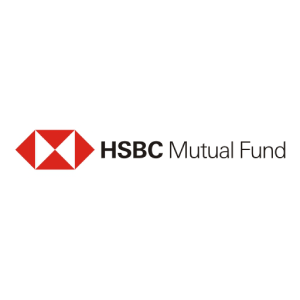Debt Mutual Funds
Debt Mutual Funds invest in fixed-income securities such as government bonds, corporate bonds, treasury bills, and other money market instruments.
1-3 years
685 Funds
₹11,83,443 Cr Total AUM

Debt Mutual Funds invest in fixed-income securities such as government bonds, corporate bonds, treasury bills, and other money market instruments.
1-3 years
685 Funds
₹11,83,443 Cr Total AUM

By Duration
By Credit Quality
By Investment Style

Funds having a maturity of 3 to 4 years

Mirror an index of long-term debt instruments.

Funds having a maturity of 6 to 12 months

Funds having a maturity of 5 years or more

Funds having a maturity of 3 to 6 months.

Low risk, high liquidity with a maturity of 1 Day

Funds having a maturity of 1 week to 3 months

Funds having a maturity of 1 year to 3 years.
Sort By
| Fund name | Fund size | Expense Ratio | 3Y Returns |
|---|---|---|---|
 DSP Credit Risk Fund Direct Growth Credit Risk Moderately High risk | ₹208 Cr | 0.4% | 15.6% |
 Aditya BSL Credit Risk Fund Direct Growth Credit Risk Moderately High risk | ₹1,094 Cr | 0.8% | 12.9% |
 HSBC Credit Risk Fund Direct Growth Credit Risk Moderately High risk | ₹523 Cr | 0.96% | 12.0% |
 Aditya Birla Sun Life Medium Term Plan Direct Growth Medium Duration Moderately High risk | ₹2,863 Cr | 0.82% | 10.9% |
 Invesco India Credit Risk Fund Direct Growth Credit Risk Moderately High risk | ₹154 Cr | 0.28% | 10.6% |
 Nippon India Credit Risk Fund Direct Growth Credit Risk High Risk | ₹1,015 Cr | 0.7% | 9.1% |
 ICICI Prudential Credit Risk Fund Direct Growth Credit Risk Very High Risk | ₹5,936 Cr | 0.76% | 9.1% |
 Kotak Medium Term Fund Direct Growth Medium Duration Moderately High risk | ₹2,082 Cr | 0.67% | 9.0% |
 Nippon India Strategic Debt Fund Direct Growth Medium Duration Moderate Risk | ₹137 Cr | 0.5% | 8.9% |
 Axis Strategic Bond Fund Direct Growth Medium Duration Moderately High risk | ₹1,941 Cr | 0.71% | 8.8% |
Debt Mutual Funds invest in fixed-income securities such as government bonds, corporate bonds, treasury bills, and other money market instruments.
These funds are less risky than equity funds since they function similarly to bank deposits. Your money is lent to the government or companies at a fixed or floating interest rate for a specific duration, which guarantees the safety of your invested capital.
You receive regular interest payments on your principal amount and you get your principal back once the investment period is over with capital appreciation or depreciation based on the prevailing market conditions throughout the investment duration.
Debt Mutual Funds invest primarily in fixed income instruments. Let’s look at some of the most prominent ones:
Corporate Bonds are issued by PSUs (Public Sector Undertakings) and Private Sector Companies. Most debt mutual funds categories invest in corporate bonds.
Debt mutual funds also invest in government debt instruments like T-bills (Treasury Bills) and Bonds. T-bills are government securities that mature in less than 1 year whereas government bonds tend to have longer maturity periods.
Short maturity debt fund categories are required to invest in very short-maturity instruments like TREPs (Tri-Party Repos), T-Bills (Treasury Bills), CPs (Commercial Papers), and Certificates of Deposit (CDs).
Debt Mutual Funds are like a shared investment pot. Many people put their money into this pot, and a team of finance experts called fund managers manage it by buying different types of debt instruments.
Imagine the pot as a pie. You get a slice of the pie or a unit when you put your money in. The more you put in, the bigger your slice or more units.
Now, the money from the pie is used to earn more money. That extra money is paid out to investors through regular interest payments.
One tricky part of Debt Mutual Funds is how they are affected by something called interest rates. Consider interest rates as a seesaw: when one side goes up, the other goes down.
When interest rates increase, the value of existing bonds decreases, which can lead to a decline in the fund's NAV. Conversely, when interest rates fall, the value of existing bonds increases, which can increase the fund's NAV.
Interest rates ↑ Bond Prices ↓
Interest rates ↓ Bond Prices ↑
Debt Mutual Funds offer several benefits to investors:
"Investing is not about beating others at their game. It’s about controlling yourself at your own game." — Benjamin Graham
While some level of risk is still involved in these funds, it is generally considered to be lower than that of equity mutual funds.
| Name | Suggested Investment Period | Risk & Returns |
| Overnight Fund | 1 Day | Low |
| Liquid Fund | 1-91 days | Low |
| Ultra Short Duration Fund | 3-6 months | Low to Moderate |
| Low Duration Fund | 6-12 months | Low to Moderate Risk |
| Money Market Fund | Up to 1 year | Low to Moderate Risk |
| Short Duration Fund | 1-3 years | Moderate |
| Medium Duration Fund | 3-4 years | Moderate Risk |
| Medium to Long Duration Fund | 4-7 years | Moderate to High |
| Long Duration Fund | More than 7 years | High Risk |
| Dynamic Bond Fund | Variable | High Risk |
| Corporate Bond Fund | Variable | Moderate to High Risk |
| Credit Risk Fund | Variable | High Risk |
| Banking and PSU Fund | Variable | Moderate Risk |
| Gilt Fund | Variable | Low Risk |
| Gilt Fund with 10-year Constant Duration | 10 years | Low Risk |
| Floater Fund | Variable | Moderate Risk |
Note: Here, risk and returns are amongst debt mutual funds and not compared to other investment classes like equities or FDs, which have completely different risk and return profiles.
| Investment Type | Risk | Returns | Liquidity | Suitability |
| Debt Mutual Funds | Lower risk compared to equity funds. They are subject to interest rate, credit, and liquidity risks. | The returns are not fixed and depend on the performance of the underlying securities. They generally offer better returns than FDs. | High liquidity as they can be redeemed on any business day. | Suitable for investors with a low to medium risk appetite, looking for stable returns over a short to medium-term period. |
| Equity Mutual Funds | Higher risk as they invest in stocks. They are subject to market volatility. | Potential for high returns over the long term, but the returns are not guaranteed and depend on the performance of the stock market. | High liquidity as they can be redeemed on any business day. | Suitable for investors with a high-risk appetite, looking for high returns over the long term. |
| Fixed Deposits (FDs) | Very low risk as they offer guaranteed returns. | The returns are fixed and known at the time of investment. However, the returns are generally lower than those offered by mutual funds. | Liquidity can be a concern as premature withdrawal can lead to penalties. | Suitable for conservative investors looking for guaranteed returns with no risk of capital loss. |
Remember, the choice between Debt Mutual Funds, Equity Mutual Funds, and FDs depends on your financial goals, risk appetite, and investment horizon. It's always a good idea to diversify your investments across different asset classes to spread the risk.
Debt Mutual Funds are suitable for a variety of investors:
While Debt Mutual Funds are typically less risky than equity funds, they are not entirely devoid of risk. They can be affected by factors such as interest rates, credit, and liquidity.
Professional fund managers manage Debt Mutual Funds and charge a fee for their services, also known as the expense ratio. This fee can reduce your returns, so comparing the expense ratios of various funds before investing is essential.
Investing in low expense ratio funds is beneficial as high-expense ratio funds eat into your profits.
When investing in Debt Mutual Funds, it is crucial to consider the fund manager's track record as their investment decisions significantly impact the fund's performance.
When considering investing in Debt Mutual Funds, reflecting on your financial goals is essential as they can heavily influence your decision. If your goal is to preserve your capital and have a steady income flow, then Debt Mutual Funds may be a suitable option. However, equity funds could be a better choice if you aim for high capital growth.
The quality of the investments in a fund can significantly affect its risk level and potential returns. Funds that invest in secure securities, such as government bonds, are generally safer but provide lower returns.
In contrast, funds that invest in less secure securities, such as low-rated corporate bonds, offer higher returns but come with a higher level of credit risk.
YTM estimates the total returns a fund can generate if all the securities in its portfolio are held until maturity. A higher YTM generally indicates higher expected returns but might also involve higher risk.
New debt mutual fund taxation rules came into effect on 1st April 2023. So taxation of your debt mutual fund capital gains may vary depending on when you made the investment.
If you want to diversify your investment portfolio and get regular income, Debt Mutual Funds are worth considering.
However, like any investment, they have risks. Before investing, you should assess your financial goals, risk tolerance, and investment horizon to understand the potential risks involved.
Debt Mutual Funds invest in fixed-income securities such as government bonds, corporate bonds, treasury bills, and other money market instruments.
These funds are less risky than equity funds since they function similarly to bank deposits. Your money is lent to the government or companies at a fixed or floating interest rate for a specific duration, which guarantees the safety of your invested capital.
You receive regular interest payments on your principal amount and you get your principal back once the investment period is over with capital appreciation or depreciation based on the prevailing market conditions throughout the investment duration.
Debt Mutual Funds invest primarily in fixed income instruments. Let’s look at some of the most prominent ones:
Corporate Bonds are issued by PSUs (Public Sector Undertakings) and Private Sector Companies. Most debt mutual funds categories invest in corporate bonds.
Debt mutual funds also invest in government debt instruments like T-bills (Treasury Bills) and Bonds. T-bills are government securities that mature in less than 1 year whereas government bonds tend to have longer maturity periods.
Short maturity debt fund categories are required to invest in very short-maturity instruments like TREPs (Tri-Party Repos), T-Bills (Treasury Bills), CPs (Commercial Papers), and Certificates of Deposit (CDs).
Debt Mutual Funds are like a shared investment pot. Many people put their money into this pot, and a team of finance experts called fund managers manage it by buying different types of debt instruments.
Imagine the pot as a pie. You get a slice of the pie or a unit when you put your money in. The more you put in, the bigger your slice or more units.
Now, the money from the pie is used to earn more money. That extra money is paid out to investors through regular interest payments.
One tricky part of Debt Mutual Funds is how they are affected by something called interest rates. Consider interest rates as a seesaw: when one side goes up, the other goes down.
When interest rates increase, the value of existing bonds decreases, which can lead to a decline in the fund's NAV. Conversely, when interest rates fall, the value of existing bonds increases, which can increase the fund's NAV.
Interest rates ↑ Bond Prices ↓
Interest rates ↓ Bond Prices ↑
Debt Mutual Funds offer several benefits to investors:
"Investing is not about beating others at their game. It’s about controlling yourself at your own game." — Benjamin Graham
While some level of risk is still involved in these funds, it is generally considered to be lower than that of equity mutual funds.
| Name | Suggested Investment Period | Risk & Returns |
| Overnight Fund | 1 Day | Low |
| Liquid Fund | 1-91 days | Low |
| Ultra Short Duration Fund | 3-6 months | Low to Moderate |
| Low Duration Fund | 6-12 months | Low to Moderate Risk |
| Money Market Fund | Up to 1 year | Low to Moderate Risk |
| Short Duration Fund | 1-3 years | Moderate |
| Medium Duration Fund | 3-4 years | Moderate Risk |
| Medium to Long Duration Fund | 4-7 years | Moderate to High |
| Long Duration Fund | More than 7 years | High Risk |
| Dynamic Bond Fund | Variable | High Risk |
| Corporate Bond Fund | Variable | Moderate to High Risk |
| Credit Risk Fund | Variable | High Risk |
| Banking and PSU Fund | Variable | Moderate Risk |
| Gilt Fund | Variable | Low Risk |
| Gilt Fund with 10-year Constant Duration | 10 years | Low Risk |
| Floater Fund | Variable | Moderate Risk |
Note: Here, risk and returns are amongst debt mutual funds and not compared to other investment classes like equities or FDs, which have completely different risk and return profiles.
| Investment Type | Risk | Returns | Liquidity | Suitability |
| Debt Mutual Funds | Lower risk compared to equity funds. They are subject to interest rate, credit, and liquidity risks. | The returns are not fixed and depend on the performance of the underlying securities. They generally offer better returns than FDs. | High liquidity as they can be redeemed on any business day. | Suitable for investors with a low to medium risk appetite, looking for stable returns over a short to medium-term period. |
| Equity Mutual Funds | Higher risk as they invest in stocks. They are subject to market volatility. | Potential for high returns over the long term, but the returns are not guaranteed and depend on the performance of the stock market. | High liquidity as they can be redeemed on any business day. | Suitable for investors with a high-risk appetite, looking for high returns over the long term. |
| Fixed Deposits (FDs) | Very low risk as they offer guaranteed returns. | The returns are fixed and known at the time of investment. However, the returns are generally lower than those offered by mutual funds. | Liquidity can be a concern as premature withdrawal can lead to penalties. | Suitable for conservative investors looking for guaranteed returns with no risk of capital loss. |
Remember, the choice between Debt Mutual Funds, Equity Mutual Funds, and FDs depends on your financial goals, risk appetite, and investment horizon. It's always a good idea to diversify your investments across different asset classes to spread the risk.
Debt Mutual Funds are suitable for a variety of investors:
While Debt Mutual Funds are typically less risky than equity funds, they are not entirely devoid of risk. They can be affected by factors such as interest rates, credit, and liquidity.
Professional fund managers manage Debt Mutual Funds and charge a fee for their services, also known as the expense ratio. This fee can reduce your returns, so comparing the expense ratios of various funds before investing is essential.
Investing in low expense ratio funds is beneficial as high-expense ratio funds eat into your profits.
When investing in Debt Mutual Funds, it is crucial to consider the fund manager's track record as their investment decisions significantly impact the fund's performance.
When considering investing in Debt Mutual Funds, reflecting on your financial goals is essential as they can heavily influence your decision. If your goal is to preserve your capital and have a steady income flow, then Debt Mutual Funds may be a suitable option. However, equity funds could be a better choice if you aim for high capital growth.
The quality of the investments in a fund can significantly affect its risk level and potential returns. Funds that invest in secure securities, such as government bonds, are generally safer but provide lower returns.
In contrast, funds that invest in less secure securities, such as low-rated corporate bonds, offer higher returns but come with a higher level of credit risk.
YTM estimates the total returns a fund can generate if all the securities in its portfolio are held until maturity. A higher YTM generally indicates higher expected returns but might also involve higher risk.
New debt mutual fund taxation rules came into effect on 1st April 2023. So taxation of your debt mutual fund capital gains may vary depending on when you made the investment.
If you want to diversify your investment portfolio and get regular income, Debt Mutual Funds are worth considering.
However, like any investment, they have risks. Before investing, you should assess your financial goals, risk tolerance, and investment horizon to understand the potential risks involved.
While Debt Mutual Funds are generally considered safer than equity funds, they are not entirely risk-free. They are subject to interest rate, credit, and liquidity risks.
Debt Mutual Funds suit conservative investors seeking stable returns and capital preservation. They are also suitable for short-term investors and those looking to diversify their investment portfolios.
Choosing the right Debt Mutual Fund depends on your financial goals, risk tolerance, and investment horizon. It's also important to consider the fund's past performance, the fund manager's expertise, the fund's expense ratio, and the quality of the portfolio.
Matching the investment horizon with the scheme ensures that your money is invested for a suitable duration, reducing the risk of premature withdrawal or exposure to market volatility.

Hybrid funds are a combination of equity and debt investments. The blend of these asset classes varies based on the fund's investment goals.

Equity funds mainly invest in stocks of different companies, making investors partial owners of those companies when they invest in such funds.

Download Dezerv App
Track and monitor all
your investments